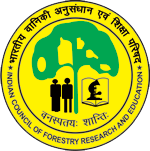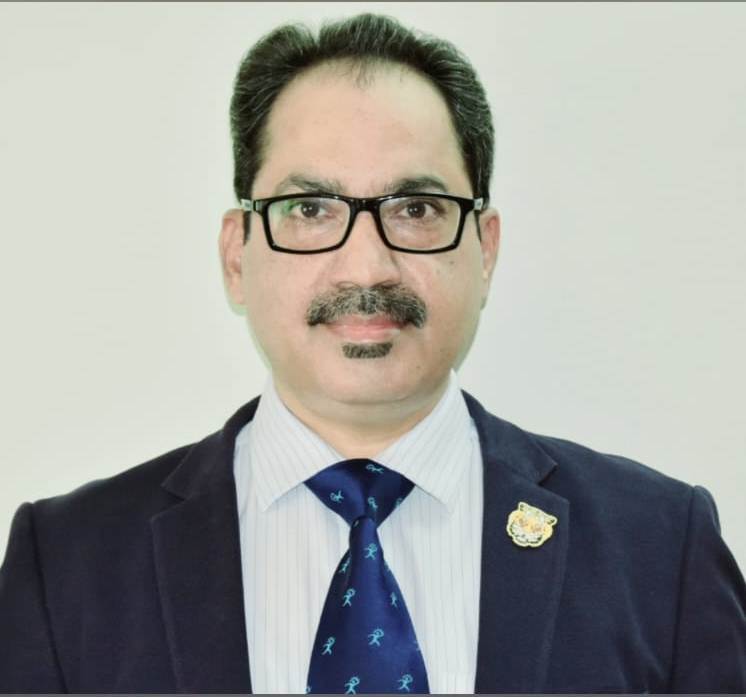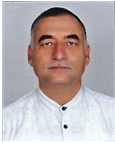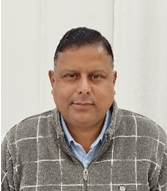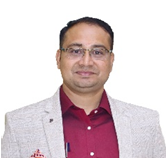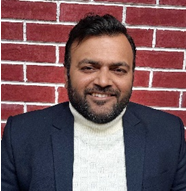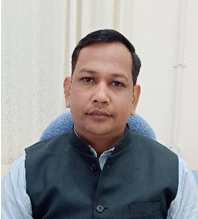Introduction
The Centre of Excellence on Sustainable Land Management (CoE-SLM) has been established at the Indian Council of Forestry Research and Education (ICFRE) to engage and enable parties at international, national and local levels in addressing land degradation related issues with an ultimate goal of achieving land degradation neutrality (LDN). During the 14th Conference of the Parties (COP-14) of the United Nations Convention to Combat Desertification (UNCCD) in September 2019, the Hon’ble Prime Minister of India,Shri Narendra Modi announced the establishment of the CoE-SLM at ICFRE. The center was formally inaugurated by Hon’ble Union Minister of Environment, Forest and Climate Change Shri Bhupender Yadav on 20th May, 2023 at ICFRE, Dehradun.
Aim
To facilitate restoration of degraded lands and achieving land degradation neutrality
Mission
1- Promote South-South Cooperation to enable India to share its experiences on SLM with country parties.
2- Identify various sources for obtaining finance to implement projects/schemes to achieve LDN.
3- Engage in planning, monitoring and evaluation systems for interventions to combat land degradations.
4- Facilitate networking of national and international institutions working on sustainable land and ecosystem management for knowledge sharing, capacity building of the stakeholders in LDN target setting and provide support for land degradation mapping.
5- Share knowledge and technology amongst developing countries, parties of United Nations Conventions to Combat Desertification (UNCCD) to arrest further land degradation and restoration of degraded lands.
6- Develop scientific approach, facilitate induction of technology, capacity building and knowledge sharing for addressing land degradation issues.
7- Work in close coordination with all regional, national and international organization engaged in land restoration and allied areas.
Objectives
1- Assessment of land degradation through application of space-based technology in collaboration and networking with research organizations/ institutes of India, i.e. ISRO (SAC, NRSC etc.), FSI, GSI, etc and to build a National Knowledge Hub with data related to sustainable land management
2- Capacity building in the formulation of strategies for sustainable land management frameworks alongwith sustainable development goals (SDGs).
3- Capacity building for assessment, monitoring and reporting of land based indicators of United Nations Convention to Combat Desertification (UNCCD)
4- Capacity building for target setting for land degradation neutrality, drought risk and early warning systems, gender mainstreaming, good governance of land tenure and land rights, and sustainable development goals
5- Capacity building to assess the impacts of land degradation and land use changes in greenhouse gas emission and biodiversity loss
6- Provide training and capacity building on land degradation issues through conducting certificate, diploma, degree, doctoral and post-doctoral courses.
7- Capacity building for fund sourcing from private sectors, corporate sectors and multi-lateral agencies for taking up projects on sustainable land management (SLM).
8- Implementation of demonstrative projects for sustainable land management.
9- Facilitate publication of articles, journals, research papers and books.
10- Facilitate compilation of best practices on sustainable land and ecosystem management worldwide and dissemination to the national and international stakeholders.
11- Collaborate with international agencies for effective knowledge exchange related to assessment of land degradation status, LDN targets, SLM practices, drought risk and early warning system, sand and dust storms, land degradation induce force migration and displacement, gender mainstreaming, good governance of land tenure and land rights, land induced greenhouse gas emissions and biodiversity loss.
12- Dissemination of training and knowledge to international stakeholders on above issues in line with understanding and achievement of sustainable development goals.
Core Thematic Areas
1- Identification and mapping of land degradation areas in the country
2- Biodiversity conservation and management
3- Eco-restoration of degraded land and ecosystem
4- Assessing impact of climate change and developing mitigation strategies
5- Conduct research and develop strategies for Sustainable Land Management
6- Identification of local-led, research based- best practices for LDN
7- Fostering gender diversity and social inclusion in SLM
8- Dissemination of knowledge and technologies related to SLM
Geographical Jurisdiction
All the States and Union Territories of India.
Key Achievements
- Research
- Capacity Building and Trainings
i. Training for national and international participants on SLM
ii. Beginners and advanced level training for national and international participants on RS-GIS applications in SLM
iii. Training on UNCCD reporting using Trends.Earth and PRAIS4 portal
- Reports and Publications
i. UNCCD Conference of Parties Decision Documents Volume I (COP 1 to 7), Year 2022
ii. UNCCD Conference of Parties Decision Documents Volume II (COP 8 to 14), Year 2022
iii. Sustainable Land Management Practices to Prevent Land Degradation, Special Issue in The Indian Forester Journal, Year 2023
iv. Compendium of Sustainable Land Management Practices, Year 2023
v. Technical Paper on Pathways to Achieve Land Degradation Neutrality in India, Year 2023.
vi. NAP to Combat Desertification and Land Degradation Through Forestry Interventions, 2022 (contributed in the preparation of the report).

Ongoing Projects
i. UNCCD National Land Degradation and Desertification reporting, 2022
Completed Projects
Collaborations
The CoE-SLM has initiated collaboration with national and international organizations, such as:
i. United Nations Conventions to Combat Desertification, Bonn, Germany
ii. International Union for Conservation of Nature, Gland, Switzerland
iii. Space Applications Centre, ISRO, Ahmedabad, Gujarat
iv. National Remote Sensing Centre, Hyderabad, Telangana
v. Forest Survey of India, Dehradun, Uttarakhand
People
|
|
Sh. Vinay Kumar, IFS Phone: +91-135-2756497, 2224831(O), Fax: +91-135-2756497 |
|
|
Dr. Rajesh Sharma Phone: +91-135-2224827(O) , 2224586 (R), +91-9418164067(M) |
|
|
Dr.Sanjeev Kumar Phone: +91-135-222-4335(O), +91- 9798967363(M) |
|
|
Dr.Manish Kumar Singh Phone: +91-135-222-4446(O), +91- 7896131217(M) |
|
|
Dr.Hanshraj Sharma Phone: +91-135-222-4446(O), +91- 7005846355(M)
|
|
|
Dr.Sanjay Singh |
|
|
Dr.Krishna Giri |
|
|
Dr.Gaurav Mishra |
|
|
Dr.Manoj Kumar |
|
|
Mukesh Bhatt Phone: +91-135-222-4450(O), +91-7500220446(M) E-mail:bhattm[at]icfre[dot]org |
|
|
Vinod Kumar Phone: +91-135-222-4450(O), +91-9897076179(M) E-mail:vkumar_fri[at]icfre[dot]gov[dot]in |
Contact
Centre of Excellence on Sustainable Land Management
Indian Council of Forestry Research and Education
PO: New Forest, Dehradun 248006, India
Phone: +91-135-222-4331/4450 (O)
Email: coe_slm[at]icfre[dot]gov.in

